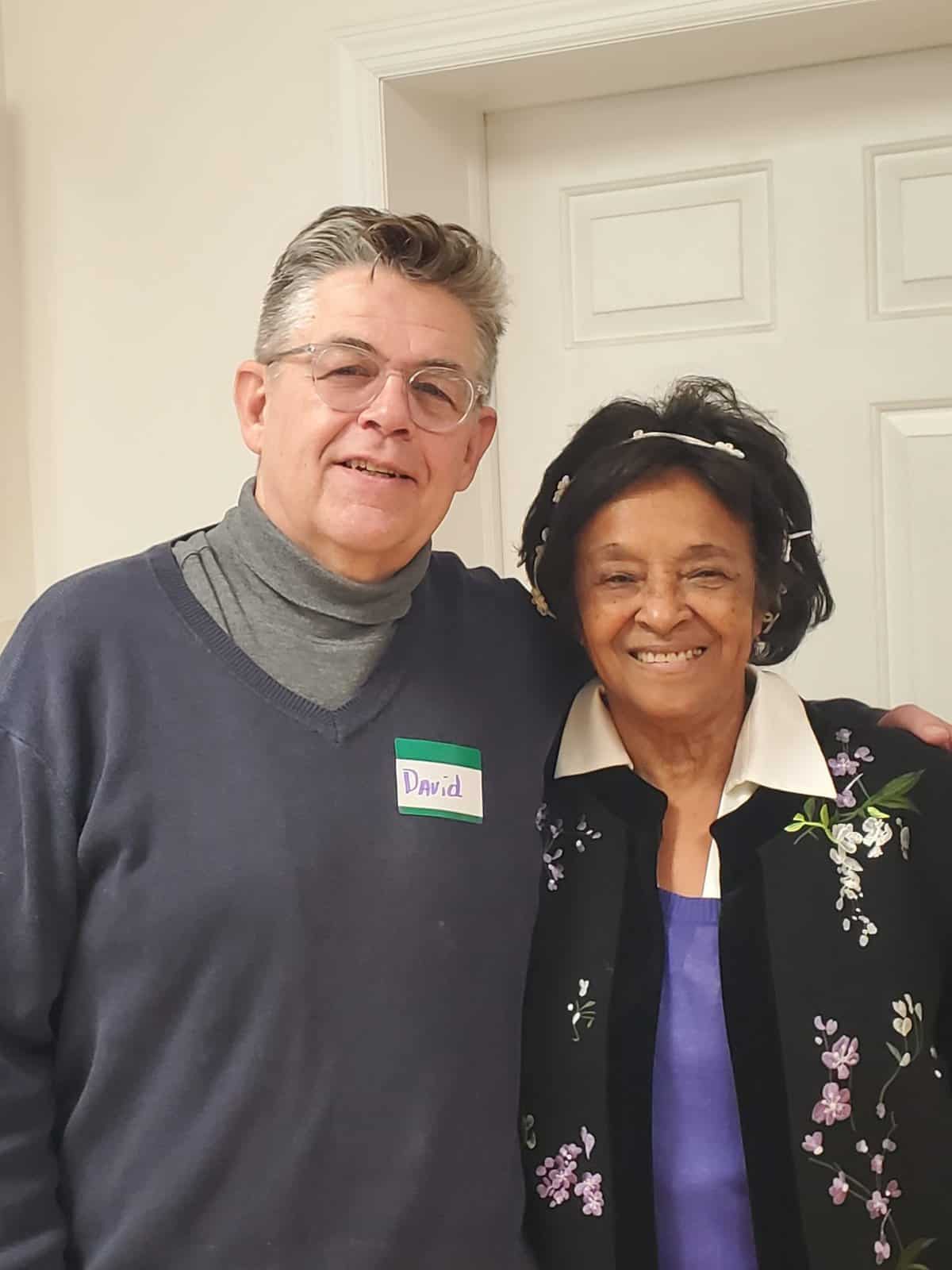Angeline Butler was 17 years old when she was arrested for sitting at the lunch counter at McLellan’s five-and-ten-cent store in Nashville, Tenn.
Butler, who is Black, had committed the crime of sitting at a lunch counter reserved for white people. In 1960, Black people were not permitted to sit at the same lunch counter as white people.
Butler, who was one of many students from Fisk University, a private historically Black liberal arts college in Nashville, who sought to integrate lunch counters through nonviolent means, shared her story with the Slackwood Presbyterian Church’s Truth and Reconciliation Committee in Lawrence Township Dec. 10.
“I was not scared of being arrested. I knew what to expect,” Butler told the attendees.
That’s because Butler and the other Fisk University students who took part in the sit-ins had been trained not to show fear. They had engaged in role-playing and were prepared for the reaction from those who opposed integration, she said.
Butler, who is now on the faculty of John Jay College for Criminal Justice in New York City, was introduced to the concept of nonviolent protest by a Fisk University professor and his wife. The couple were Quakers, who believed in nonviolence.
Butler said Dr. Nelson Fuson and his wife, Marian, took her to the First Baptist Church in Nashville, where Rev. James Lawson was conducting workshops on nonviolent protests. Lawson had studied Mahatma Gandhi’s methods of civil disobedience, she said.
Meanwhile, the lunch counter sit-ins in Nashville continued for several months, until the merchants agreed to integrate the lunch counters and serve Blacks.
“We desegregated the lunch counters in three or four months. Nobody wanted to go downtown. The merchants had to change,” she said.
Butler’s nonviolent protests and push for civil rights did not stop at the lunch counters.
Butler, who was a founder of the Student Nonviolent Coordinating Committee (SNCC) and an organizer of the March on Washington in 1963 to end segregation, was also active in the Freedom Rider movement in 1961.
The Freedom Riders were groups of Black and white civil rights advocates who sought to test a U.S. Supreme Court ruling that said segregation on interstate buses and bus terminals was unconstitutional.
The Freedom Riders boarded buses and traveled throughout the Southern states. Along the way, the Black riders were met with violence when they attempted to enter and use white-only restrooms, lunch counters and waiting terminals. Their white companions also were subjected to violence.
Butler did not ride on the Freedom Rider buses, but instead worked quietly in the background to help organize and make arrangements for the Freedom Riders.
When Butler was asked why she became active in the civil rights movement, she replied that she did it “because I wanted a better life.”
“I wanted change. It was not about getting food (at the lunch counter), it was about getting hired, getting to the executive level. It was about creating opportunities,” she said.
Looking back, Butler said that “you can’t get anything done alone. We couldn’t get anything done alone without help from compassionate people. There were a lot of white students who helped.”
“It’s time for people to talk to one another. Once you show people the way, they’ll keep it going. I didn’t do it by myself,” Butler said.

